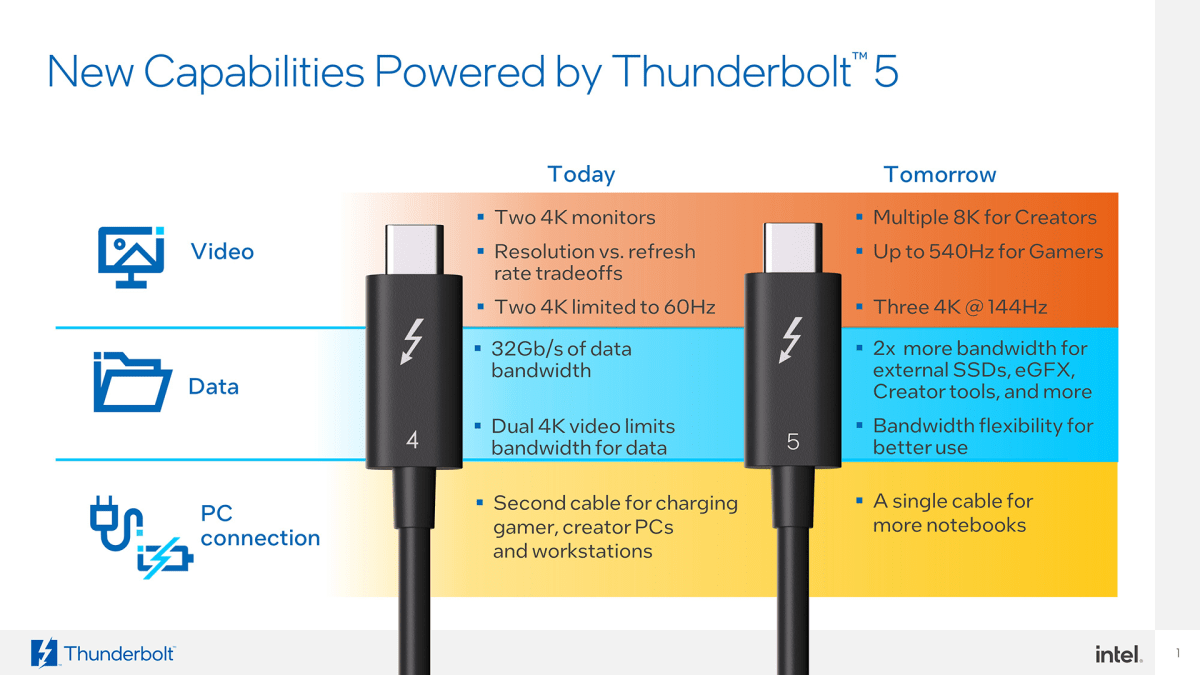Updated October 30, 2024: Apple has released its first Macs to support Thunderbolt 5. This article has been updated to reflect this developmet.
In September of 2023, Intel announced Thunderbolt 5, a new update to the Thunderbolt specification that doubles the bi-directional bandwidth to 80 Gbps (Thunderbolt 4 supports up to 40 Gbps). A feature called “Bandwidth Boost” provides up to 120 Gbps for video content.
About a year later, the Thunderbolt 5 has made its Mac debut in the new Mac mini and MacBook Pro models that include the M4 Pro processor. Macs that have the regular M4 processor still support Thunderbolt 4.
The standard is built on USB4 V2, DisplayPort 2.1, and PCI Express Gen 4 and is fully compatible with previous Thunderbolt versions. The increased performance is achieved using a new signaling technology called “PAM-3” which should enable today’s printed circuit boards and passive cables (up to 1 meter) to achieve this performance.

Intel
Compared to Thunderbolt 4, Thunderbolt 5 offers three main benefits. First, it guarantees double the bandwidth (80 Gbps) and can support up to 120 Gbps in a boost mode. Second, it supports a greater number of higher-resolution displays with higher refresh rates. And third, it mandates support for higher power delivery—at least 140W (TB4 required 100W power delivery) with support for up to 240W (TB4 could support a max of 140W).
Apple includes Thunderbolt 4 connectors on many Mac computers and the iPad Pro. The M4 Mac mini (with M4 Pro processor) and M4 MacBook Pro (with M4 Pro processor) are the first Macs to support Thunderbolt 5. Windows laptops with Thunderbolt 5 started shipping just a few months earlier, in the summer of 2024.
Apple sells a 1-meter Thunderbolt 5 cable for $69/£69.





